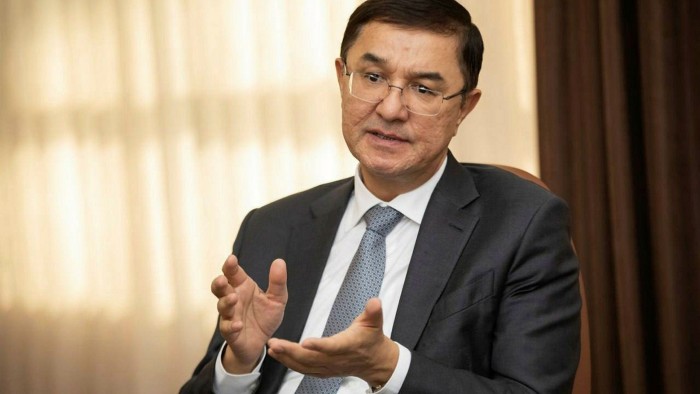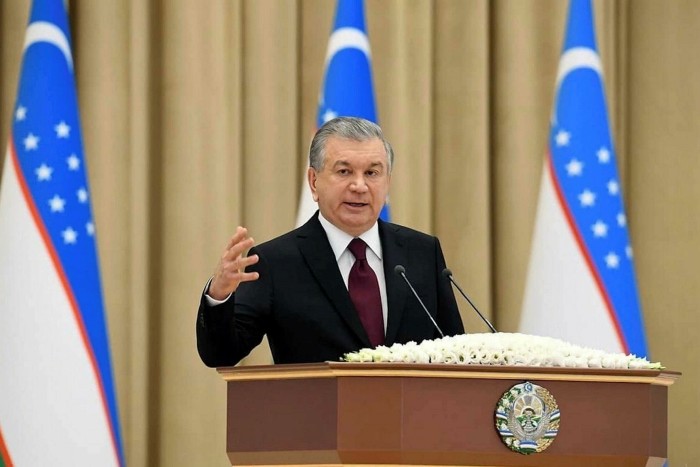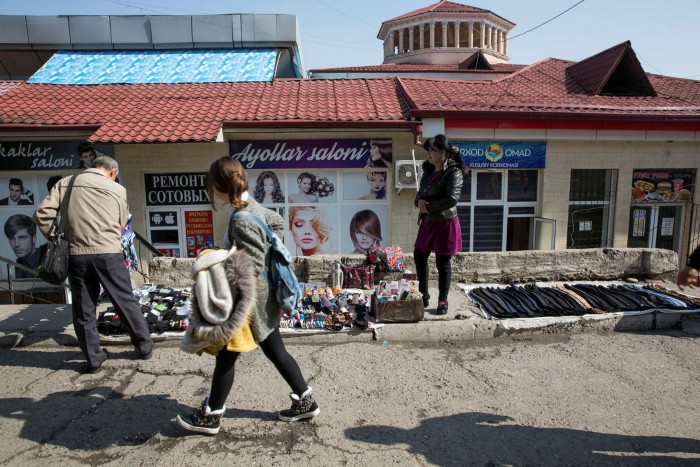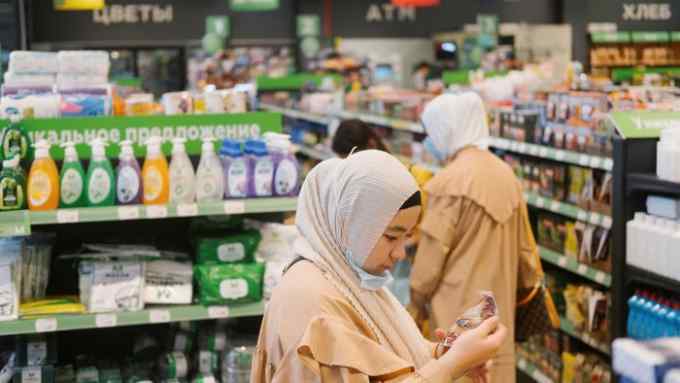Uzbekistan’s deputy PM Jamshid Kuchkarov: ‘The country will never go back to the past’

Roula Khalaf, Editor of the FT, selects her favourite stories in this weekly newsletter.
In Uzbekistan and abroad, there is an expectation that President Shavkat Mirziyoyev will be re-elected in October’s presidential vote. But, whatever the outcome, his model for reform will last beyond his rule, according to Jamshid Kuchkarov, the country’s deputy prime minister.
“Another five years of Mirziyoyev’s presidency and the country will never go back to the past,” Kuchkarov argues.
The past he is referring to is 25 years under the autocratic rule of Islam Karimov, who became president of the newly independent Uzbekistan after the collapse of the Soviet Union in 1991. He ruled until his death in 2016, maintaining Soviet principles with a firm grip on the economy, continued isolation and a poor human rights record — Uzbekistan was notorious for employing child labour in cotton fields.
Kuchkarov has been part of the change. He spent 19 years as deputy finance minister and two years as finance minister until he became deputy prime minister in 2017. “In 2015, I wouldn’t [have been] talking to [the Financial Times],” he says. “People, society, mentality, behaviour have all changed. All the president’s reforms are secondary compared with the transformed people’s consciousness. Mirziyoyev removed fear in people.”

Nevertheless, regional experts still point to restrictions on press freedoms and the rights of women. Mirziyoyev acknowledges the country has a long way to go to uproot corruption. But it is changing.
Under Karimov, government officials had no sense of public integrity, says Kuchkarov. “We would change interest rates around and we did not care for public opinion,” he recalls. “There were no bloggers. We weren’t held accountable. Now, the president reads an article or blog and asks me why I haven’t done certain things. Now, it’s a very different society.”
Uzbekistan has also joined the IMF’s Enhanced General Data Dissemination system, to make the government more accountable. “This proves the irreversibility of reform,” says Kuchkarov. “The deep transformation has taken place. This is the most important part. The rest comes later.”
Mirziyoyev has never given an interview to foreign media, and gave his first to local press only last month. But he has led reforms to improve Uzbekistan’s international standing, which have been recognised by investors and international institutions such as the UN. For the first time in the country’s history, Uzbekistan has been elected a member of the UN Human Rights Council.
His government adopted western trade principles and liberalised business — moves that have contributed to economic growth. Uzbekistan also wants to join the World Trade Organization, although it has more work to do before that happens.
“Mirziyoyev won extensive plaudits domestically and abroad for his reform programme, which genuinely delivered some much-needed change, particularly to the economy of Uzbekistan,” says Ben Godwin, associate director at Prism Political Risk Management, a consultancy. But the next five years are likely to be difficult, analysts say.
“[He] is set to face a challenging — and possibly turbulent — second term in office,” suggests Godwin. “The reforms, which can be considered low-hanging fruit, have largely been delivered. Deeper reform — be it rooting out endemic corruption, capital market reform, or political and economic decentralisation — will prove far more difficult to deliver.”
The president is also battling socio-economic and demographic crises, and poverty remains a problem. Between 12 per cent and 20 per cent of Uzbekistan’s population is poor, based on various international evaluation methods, including those of the World Bank.
Kuchkarov estimates that 15 per cent of the population live in poverty. He also notes that poverty did not rise during the pandemic. Nevertheless, finding jobs for a rapidly increasing population presents a challenge.
Uzbekistan is Central Asia’s most populous country, with 34m people and growing. Some 600,000 Uzbeks enter the workforce every year. The government struggles to find jobs for a third of them, Mirziyoyev said last year.

Godwin says: “The global pandemic has only intensified this challenge by severely limiting the movements of economic migrants.” Many Uzbeks who travelled to Russia for work in the past were prevented from doing so by flight restrictions until late last year. A subsequent return of remittances from Russia has helped the country’s recovery in the following months.
While most of the world’s economies suffered in 2020, Uzbekistan increased its GDP 1.6 per cent. Officials credit Mirziyoyev’s reforms, although analysts also point to a rise in gold exports.
However, another potential problem for investors is the state of human rights in the country. Uzbekistan has yet to address abuses.
Human Rights Watch, the international organisation, points to remaining “grave rights violations,” including impunity for torture and abuse of minorities, harassment of journalists and bloggers, and obstacles to registering human rights organisations.
“When they got rid of the Karimov system, they didn’t get rid of everything. There is particular sensitivity toward negative press coverage, mostly at lower levels,” one regional analyst says.
“The rights of women is something that seems to be moving backwards, due to religious fundamentalism that is coming back in the past years.”

Comments